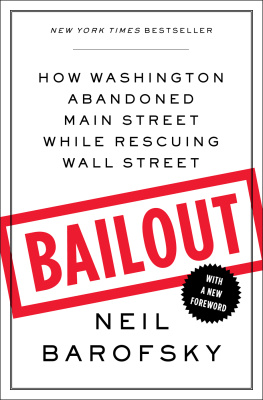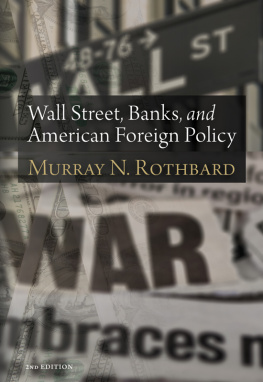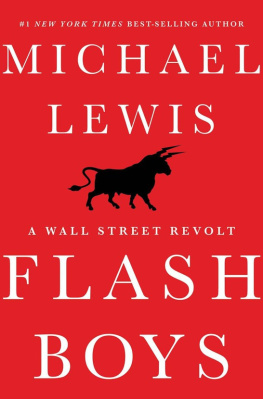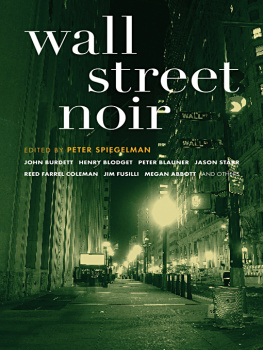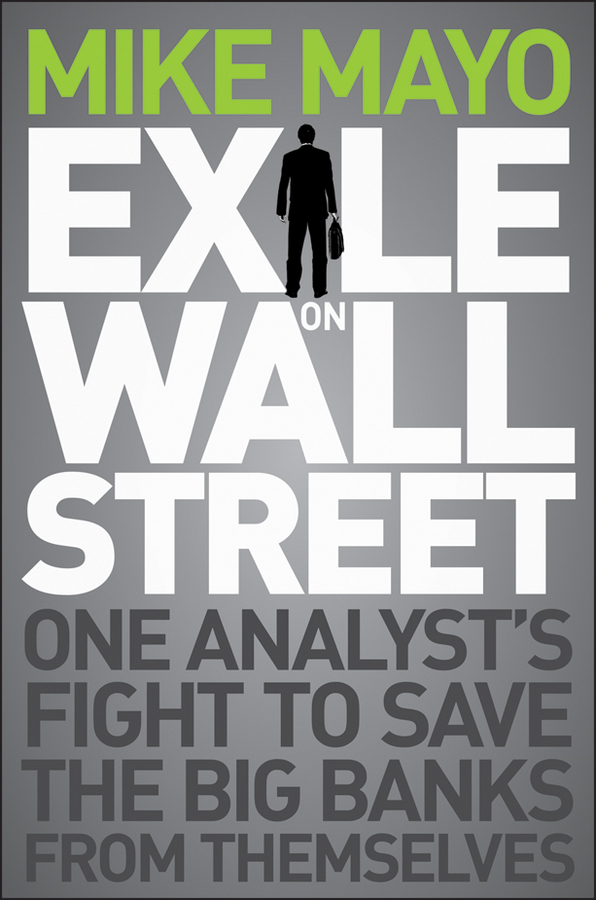Contents

Copyright 2012 by Mike Mayo. All rights reserved.
Published by John Wiley & Sons, Inc., Hoboken, New Jersey.
Published simultaneously in Canada.
No part of this publication may be reproduced, stored in a retrieval system, or transmitted in any form or by any means, electronic, mechanical, photocopying, recording, scanning, or otherwise, except as permitted under Section 107 or 108 of the 1976 United States Copyright Act, without either the prior written permission of the Publisher, or authorization through payment of the appropriate per-copy fee to the Copyright Clearance Center, Inc., 222 Rosewood Drive, Danvers, MA 01923, (978) 750-8400, fax (978) 646-8600, or on the Web at www.copyright.com . Requests to the Publisher for permission should be addressed to the Permissions Department, John Wiley & Sons, Inc., 111 River Street, Hoboken, NJ 07030, (201) 748-6011, fax (201) 748-6008, or online at http://www.wiley.com/go/permissions .
Limit of Liability/Disclaimer of Warranty: While the publisher and author have used their best efforts in preparing this book, they make no representations or warranties with respect to the accuracy or completeness of the contents of this book and specifically disclaim any implied warranties of merchantability or fitness for a particular purpose. No warranty may be created or extended by sales representatives or written sales materials. The advice and strategies contained herein may not be suitable for your situation. You should consult with a professional where appropriate. Neither the publisher nor author shall be liable for any loss of profit or any other commercial damages, including but not limited to special, incidental, consequential, or other damages.
For general information on our other products and services or for technical support, please contact our Customer Care Department within the United States at (800) 762-2974, outside the United States at (317) 572-3993 or fax (317) 572-4002.
Wiley also publishes its books in a variety of electronic formats. Some content that appears in print may not be available in electronic books. For more information about Wiley products, visit our web site at www.wiley.com .
Library of Congress Cataloging-in-Publication Data:
ISBN 978-1-118-11546-6; ISBN 978-1-118-20364-4 (ebk); ISBN 978-1-118-20365-1 (ebk); ISBN 978-1-118-20366-8 (ebk)
Introduction
Watering Down the Wine
I had an epiphany not long ago. It took place during a dinner conversation at a massive investors conference in Hong Kong. Over the course of five days, some 1,300 investors showed up, along with another 500 top corporate executives. The former president of Pakistan, Pervez Musharraf, spoke about his countrys role in the global economy. Historian Simon Schama discussed the United States current position in the world, and film director Francis Ford Coppola flew in to talk about the importance of narrative. Asias economy was sizzling, with a growth rate three times than that of the United States, creating a billion more middle-class citizensand this event was at the epicenter of that growth. Evidence as to why China would likely overtake the United States as the largest economy within a decade was on full display. Perhaps this was why my daughter was being offered the chance to learn Mandarin in her New York City school.
But what really stood out for me was something someone said over dinner on the first night I arrived. I had just come off a sixteen-hour flight from New York to Hong Kong, one of the longest nonstop flights in the world, and was dining with about a dozen bank analysts from major Asian countries. We were at the Dynasty restaurant, which has a Michelin star and spectacular views of Victoria Harbour, though I was too jet-lagged to appreciate the scenery.
Over the ten-course meal, we went around the table and discussed the current prospects for banks in our specific markets. This was the real point of the mealto share informationand in this way, we were acting as unofficial ambassadors for our home countries.
The Japanese bank analyst talked about how that governments policies had allowed banks to continue lending to corporate borrowers even though those companies, and many of the banks themselves, should have folded years ago. They were zombies, the walking dead. The Chinese analyst talked about how his country still had tremendous room for growth. Consumer credit in China, as a percentage of the overall economy, was only about one-fifth the level in the United States. The ride would be bumpy for investors in Chinese bank stocks, but the long-term prospects were very promising. Next, the bank analyst from Korea spoke, then Thailand, Indonesia, and so on.
I knew my turn was approaching, and I started thinking about what I would say. At the time, I was in the middle of a very public dispute with Citigroup over some of its accounting practices. Citi didnt like what I had been saying and had adopted a shoot-the-messenger approach. For the past several months, I had been airing my concerns in the media, through outlets like CNBC and the Wall Street Journal , and the company either ignored the issues I raised or sniped back at me in the press. It would all come to a head a few weeks after that conference, but in the meantime, the financial community had been following it closely.
This kind of fight was not new to me. Ive worked as a bank analyst for the past twenty years, where my job is to study publicly traded financial firms and decide which ones would make the best investments. My research goes out to institutional investors: mutual fund companies, university endowments, public-employee retirement funds, hedge funds, private pensions, and other organizations with large amounts of money. Some individuals I meet with manage $10 billion or more, which they invest in banks and other stocks. If they believe what I say, they invest accordingly, trading through my firm.
Heres the difficult part, though. For about half of my career, especially the last five years or so, most big banks hadnt been good investments. Theyd been terrible investments, down 50, 60, 70 percent or more. In fact, if you didnt even do any analysis and just assumed the worst about bank stocksthat is, that they werent good places to invest your money, that they werent well-run companiesyoud have done OK lately. Not much analysis required.
Over the years, Ive been saying this loudly and repeatedly. As far back as 1999, I pointed out certain problems in the banking sectorthings like excessive risks, outsized compensation for bankers, more aggressive lending. Those same problems would build throughout the 2000s and ultimately erupt during the financial crisis of 20072008, taking down Lehman Brothers, Bear Stearns, and dozens of smaller banks and thrifts. However, taking a negative position doesnt win you many friends in the banking sector. Ive been yelled at, conspicuously ignored, threatened with legal action, and mocked by executives at the companies Ive covered, all with the intent of persuading me to soften my stance.
The response from some places where Ive worked has not been much betterIve seen the banks from all sides, not only as an analyst covering them but also as an employee working for them. At times, colleagues were trying to drum up business from the same banks that I was critiquing, and when I said things they didnt like, I faced a backlash. Ive bet my career on my convictions, and at times that stance has forced me to find a new joband has even led to my being fired.



